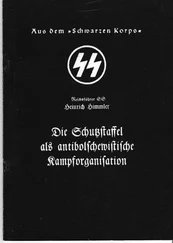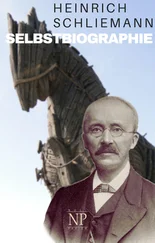Orthodox treatment in a mental institution, of course, was out of the question for the Führer. ‘You realize now what anxieties I have’, said Himmler, ‘The world regards Adolf Hitler as a strong man — and that’s how his name must go down in history. The greater German Reich will stretch from the Urals to the North Sea after the war. That will be the Führer’s greatest achievement. He’s the greatest man who ever lived and without him it would never have been possible. So what does it matter that he should be ill now, when his work is almost accomplished.’
Only sheer anxiety had forced Himmler to reveal the report to Kersten, on whom he had come to rely, but the advice Kersten gave was unacceptable — that Hitler should retire at once and place himself in medical care, while his successor brought the war to a close. Himmler at once responded with a flood of arguments prepared for the answer he had obviously expected Kersten would give. There was no provision for a successor; the Party would be at loggerheads with the High Command; his own motives would be suspected, since it would appear he himself wanted to succeed; the symptoms observed in Hitler might well prove the result of mental and physical fatigue and not of paralysis.
‘What will you do, then?’ asked Kersten. ‘Will you simply let the matter alone and wait for Hitler’s condition to get worse and worse? Can you endure the idea that the German people have at their head a man who is very probably suffering from progressive paralysis?’
Himmler’s answer was in character. ‘It has still not gone far enough; I’ll watch carefully and it will be time enough to act once it’s established that the report is correct.’
According to Schellenberg, Heydrich had gathered together every detail about Hitler’s health and habits, including the diagnoses made by his doctors; these reports had been transferred to Himmler’s office after the death of Heydrich. What had no doubt led to scintillating speculation on the part of the head of the S.D. and Reich Protector in Prague, only filled Himmler with acute anxiety. Later Kersten gathered that the report about him had been specially compiled for Himmler from the files by an unnamed medical adviser of absolute integrity. Although there had always been rumours circulating about Hitler’s ill-health and psychological peculiarities, the detailed facts of his case were known only to a very few persons, among whom, Kersten gathered, were Bormann and, possibly, Göring. 18
A week later, on 16 December, Himmler discussed the situation once more with Kersten. This conversation was most significant. Kersten argued that Hitler must, for Germany’s sake, retire for proper treatment; as long as he was in supreme power, it was possible at any time that his judgment would fail, and his mind become clouded by delusions and megalomania. He would suffer from loss of muscular control, and paralysis of the speech and limbs would follow. He might issue the most damaging orders while under the influence of his disease. He was a very sick man, and should be treated accordingly.
Himmler remained silent. Kersten continued his argument that Hitler should be induced to hand over his authority to a successor, and that peace negotiations should follow. To this Himmler replied that Hitler’s will only decreed a successor in the event of his death, and that ‘fierce quarrels over the succession’ would break out between the Army and the Party if Hitler during his lifetime did not remain in absolute power. As for himself, he could never be the first to make any move against the Führer; as he put it, ‘everybody would think that my motives were selfish, and that I was trying to seize power for myself.’ The medical evidence, in the face of Hitler’s still infallible personality, would be regarded as a fake. He must, said Himmler, be left where he was; untold harm would follow his departure. He believed that Hitler’s resources of health were such that he might well overcome the disease; the symptoms he was showing were very possibly those of sheer exhaustion. All he could do for the moment was watch the Führer’s condition more carefully. Kersten realized then the inherent weakness that lay behind Himmler’s apparent strength.
It was during 1943 that Hitler’s health suffered grave deterioration; all those who met him constantly acknowledged this. It is not clear how much Schellenberg knew of what was on the secret file; he may well have known more than he reveals. He merely remarks: ‘from the end of 1943, he showed progressive symptoms of Parkinson’s disease…; a chronic degeneration of the nervous system had set in’. As early as March, Goring expressed his concern to Goebbels about the Führer who, he remarked, had aged fifteen years during the three and a half years of war. Goebbels agreed, and comments on how Hitler never relaxed, but ‘sits in his bunker, worries and broods’. He suffered now from a trembling of the left arm and leg, and he was receiving from Morell a drug compounded of strychnine and belladonna for his chronic stomach pains which, according to a later medical report, could only have harmed him and caused the discoloration of his skin that was becoming more noticeable. When not on the Obersalzburg, where his mistress Eva Braun lived her isolated life, he spent most of his time at the various remote centres from which he conducted his war, and especially at the Wolf’s Lair at Rastenburg, hidden in the dark forests of East Prussia, where in the summer of 1941 he had a suite of rooms constructed in concrete and buried in the ground beneath the heavily guarded enclosure of chalets. The Wolf’s Lair became a strange mixture, as General Jodl said, ‘of cloister and concentration camp’.
In these concrete rooms Hitler held his incessant conferences. He ate and slept as his mood dictated, taking no exercise and seeking no entertainment except the endless repetition of his reminiscences. This helped to keep his ego in a state of ferment.
These were the conditions in which he normally received his Ministers, Göring, Goebbels, Himmler, Ribbentrop, Speer and Bormann, when they travelled east to meet him and weave their jealous webs round what was left of his attention. It was here, for instance, that on one occasion he gave an emotional discourse on Wagner to Himmler and the members of his staff. Himmler, like the others, was drawn to him as the ultimate source of the power he had gathered over the years; each of these men was torn with doubts and anxieties. How, they all wondered, were they to retain and enlarge these powers at each other’s expense? On the surface they were colleagues, bound together by their devotion to the Führer; underneath they were imperialists interested only in expanding their rival spheres of influence against the time when one or other would succeed to Hitler’s place. At no time did they form an integral cabinet of executive ministers; the dangers of such organized, co-ordinated power was always instinctively realized by Hitler, the preservation of whose authority lay to a large extent in the disorganization that existed immediately beneath him, the wasteful consequences of the policy of divide and rule. When some essential matter was broached, he preferred to see his Ministers singly; when they met collectively the time was passed in trivialities or in the undiscussed reception of Hitler’s long-winded commands.
Reitlinger has pointed out that Himmler’s senior officers were never encouraged by him to meet and discuss their collective responsibilities. They, too, were the rivals for his favour whom he dealt with singly and separately to prevent their making common cause against him. Like Hitler, he surrounded himself with junior officers, aides whom he could replace at will, but who, by virtue of their closeness to him, achieved a power far greater than their standing. Kersten was quick to recognize the influence of men like S.S. Colonel (later General) Rudolf Brandt, Himmler’s principal aide, a former male typist through whom it was necessary to pass to reach the ear of the Reichsführer S.S. Schellenberg describes Brandt as a small man of plain appearance, who tried as far as possible to look and behave like Himmler. He had a phenomenal memory for facts and began work at seven in the morning, hurrying to his master with his files and papers so that work could start while Himmler shaved. If there was bad news, Brandt would begin with the word, ‘Pardon’, and Himmler would stop shaving. ‘He was Himmler’s living notebook… I believe he was the only person in whom Himmler had complete confidence… He was the eyes and ears of his master, and the manner in which he presented a matter to Himmler was often of decisive importance.’ Both Schellenberg and Kersten kept on good terms with him. 19
Читать дальше











